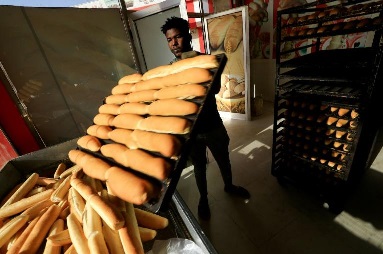Sudanese pound plummets to new low as economic crisis deepens
March 23, 2022 (KHARTOUM) – The Sudanese pound continued to slide against major currencies to unprecedented lows amid growing questions on the government plans to bring the economy under control.
A trader in the parallel market for foreign currencies told {Sudan Tribune} on Wednesday that the US dollar is now sold at 750 pounds compared to 635 at major Sudanese banks.
He attributed the decline in the value of the local currency to an increase in demand for hard currencies against a limited supply in addition to traders holding on to foreign currencies in their possession.
The Sudanese public has long resorted to converting their savings into dollars and gold in an attempt to maintain its value given the continuous deterioration of the pound.
Earlier this month the Sudanese central bank announced a further devaluation of the pound making it subject to market supply and demand.
The ousted transitional government led by Abdallah Hamdok has managed to maintain unusual stability in the exchange rate that lasted about nine months buoyed by larger Forex reserves.
But following the military coup in October 2021 foreign donors suspended aid which depleted these reserves and forced the military-led government to increase taxes and the cost of government services.
Bloomberg has reported last month that the central bank suspended accounts of hundreds of exporters failing to deposit their dollar revenues locally.
The impact of the erosion in the value of the Sudanese pound will not only be felt by ordinary citizens but goes beyond it to affect businesses alike that have no choice but to hike prices to stay afloat.
There are also fears of further inflationary pressures caused by Russia’s invasion of Ukraine which has led to a rise in commodity prices from oil to wheat that Sudan imports.
A UN World Food Programme (WFP) official told Reuters that almost half of Sudan’s population was facing acute hunger, double the estimate of last year as prices for food and other essential goods continued to rise.
(ST)

